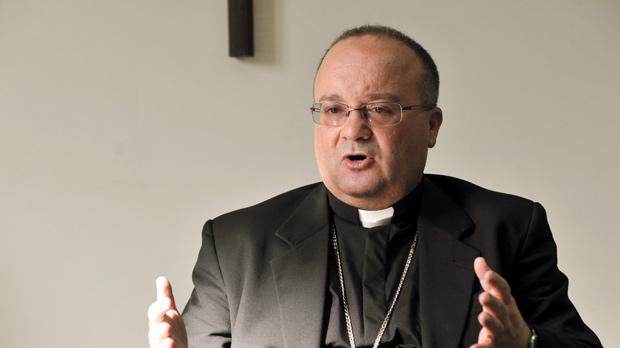-
Message by Bishop Charles J. Scicluna during the CCEE Conference
-
3rd December 2013
Mount St Joseph, MostaIt is a great privilege for me to welcome you all to this seminar on the theme ‘Pastoral care for Migrants and Refugees: between integration and inclusion’. I would like to introduce my very short greeting this morning by a quote from the recent exhortation published by Pope Francis ‘Evangelii Gaudium’, which addresses the issue of poverty in a number of paragraphs.
The Pope says, “it is essential to draw near to new forms of poverty and vulnerability, in which we are called to recognize the suffering Christ, even if this appears to bring us no tangible and immediate benefits. I think of the homeless, the addicted, refugees, indigenous peoples, the elderly who are increasingly isolated and abandoned, and many others.” Pope Francis goes on to state that “migrants present a particular challenge for me, since I am the pastor of a Church without frontiers, a Church which considers herself mother to all. For this reason, I exhort all countries to a generous openness which, rather than fearing the loss of local identity, will prove capable of creating new forms of cultural synthesis.” In paragraph 211, Pope Francis also states, “I have always been distressed at the lot of those who are victims of various kinds of human trafficking. How I wish that all of us would hear God’s cry: ‘Where is your brother?’ (Gen 4:9). Where is your brother or sister who is enslaved? Where is the brother and sister whom you are killing each day in clandestine warehouses, in rings of prostitution, in children used for begging, in exploiting undocumented labour? Let us not look the other way. There is greater complicity than we think. The issue involves everyone!” These are very powerful words by Pope Francis.
My very short reflection is that as a result of our discussions, our meeting each other on the human level, and as brothers and sisters in faith, we too can change or transform complicity into solidarity and we can help transform fear into “a generous openness”, a beautiful phrase by Pope Francis.
As a nation, we Maltese have a national memory of the benefits of this generous openness: we welcomed Saint Paul and more than 276 people who were shipwrecked on our shores and we benefitted from the Christian heritage. So many of our families have relatives who emigrated and who have also benefitted from the generous openness of other countries. I think it is legitimate to say that a small country such as Malta should also request and expect this generous openness on behalf of the people of Malta, but even from so many other bigger communities and countries in Europe.
As a rule, the immigrants arrive on our shores begin crossing the Mediterranean at the start of spring, yet we’ve had some unfortunate incidents only at the beginning of last week in Libya with people trying to cross the Mediterranean, so it seems to have become an open season all year round nowadays, which is more and more unfortunate. I think that this is a challenge which has to be transformed into opportunity and opportunity transformed into commitment and this, I would add, on a European level. Thank you very much.
✠ Charles J. Scicluna
Titular Bishop of San Leone
Auxiliary Bishop and Vicar General of Malta





